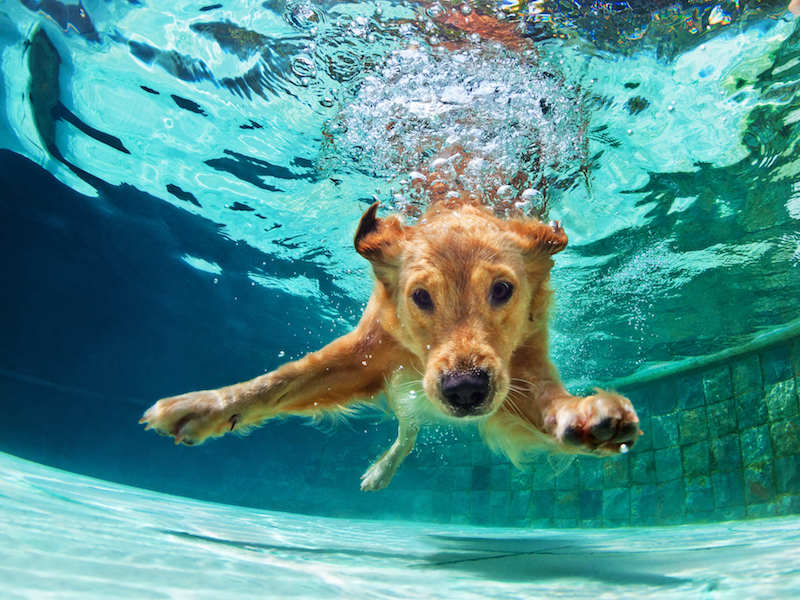
There are a lot of different things that can damage the delicate technology that makes a hearing aid work the way it does, but few have the impact of water. In fact, you could call moisture kryptonite for hearing aids. Even if you already know that and take care to protect your investment from the shower, pool, or a good face washing, chances are you are missing the most common cause of water damage in hearing aids: humidity.
Invisible moisture has the greatest chance of causing irreparable damage. It’s time to learn more about why humidity is a damaging thing for hearing aids.
What is Humidity?
Even though the word humidity is very common, what does it really mean? PBS defines humidity as water molecules in the air. The relative humidity refers to the ratio of water molecules in the air compared to how many the air can actually hold. When you can feel wetness in the air, that means the relative humidity is high.
Humans are very sensitive to humidity because sweat is the most efficient way to cool the body. When humidity levels are high our sweat will not evaporate as fast. Electronics are also susceptible to humidity and that is why it has such a detrimental effect on hearing aids.
Why Electronics Have difficulty with Humidity
Too high or, too low, humidity can impact your hearing aids. When water vapor percentages are high condensation can accumulate on the delicate elements that make electronic devices function, and low humidity can result in brittle core materials.
Hearing aids depend heavily on internal electronics to function. Modern digital hearing aids use a state-of-the-art audio processing chip to control noise. Because of this, you get awesome features like:
- Noise reduction
- Anti-feedback
- Targeted listening programs
- Digital sound streaming
High humidity causes moisture to accumulate in the hearing aids destroying that chip. Batteries get wrecked and you get corrosion of elements inside of the case. You might as well throw your hearing aid in a sink full of water, and the effect is the same.
Dealing With Humidity
Water resistant models are currently available. Having this feature doesn’t mean you can go swimming with your hearing aids in your ear, but it does offer some protection against humidity and other weather-related concerns such as getting caught in an unexpected rainstorm or even sweat when you work out.
If you live in a humid area, consider using a room or house dehumidifier to cut down on water vapor indoors. It’s not just your hearing aid that will benefit, there are health benefits, and other electronic devices in your house will also be protected. Dust mites, mildew, and mold thrive in moist environments so a dehumidifier will improve the quality of breathing as well. Although a house or room dehumidifier will help protect your hearing aids, it’s not enough. You will need to take other steps at the same time.
Look for the dehumidifier made for hearing aids. They come at all costs levels. Silica gel crystals in a drying kit are used to protect electronics. Moisture is eliminated by putting the hearing aids into the dehumidifier for a couple of hours. There are also storage containers that dry hearing aids out each night as you sleep. In a pinch, you could use a bag of uncooked rice to remove moisture.
Get in the habit of opening the battery compartment every time you store your hearing aids. By pulling that door open before you put the hearing aid down, you expose the batteries and other elements to the air, allowing any condensation built up to evaporate naturally. Do this all year round, not just in the summer months.
Always store your hearing aids in a cool, dry place. On the table in the sun, in the glove compartment, or in a hot room are examples of where not to store your hearing aids.
Thinking Past Humidity
Damage can be caused by other types of wetness. Take precautions to protect them from other kinds of wet such as:
- Make sure all lotion or sunscreen is fully absorbed before touching your hearing aids or putting them in your ears.
- Find a safe place to store your hearing aids if headed for the pool or beach.
- Wear a sweatband when exercising. It’s a good practice whether you wear your hearing aids when you workout or not. Later that sweat will cause problems.
- Try not to put your hearing aid down on wet surfaces. You don’t want to place it in a wet spot left by a glass or coffee cup.
Your hearing aids are a valuable asset, so treat them that way. Keep in mind how moisture can damage your hearing aids and make sure to prevent water from getting in them. If your hearing aid already has water damage make an appointment for service with a hearing aid specialist.
